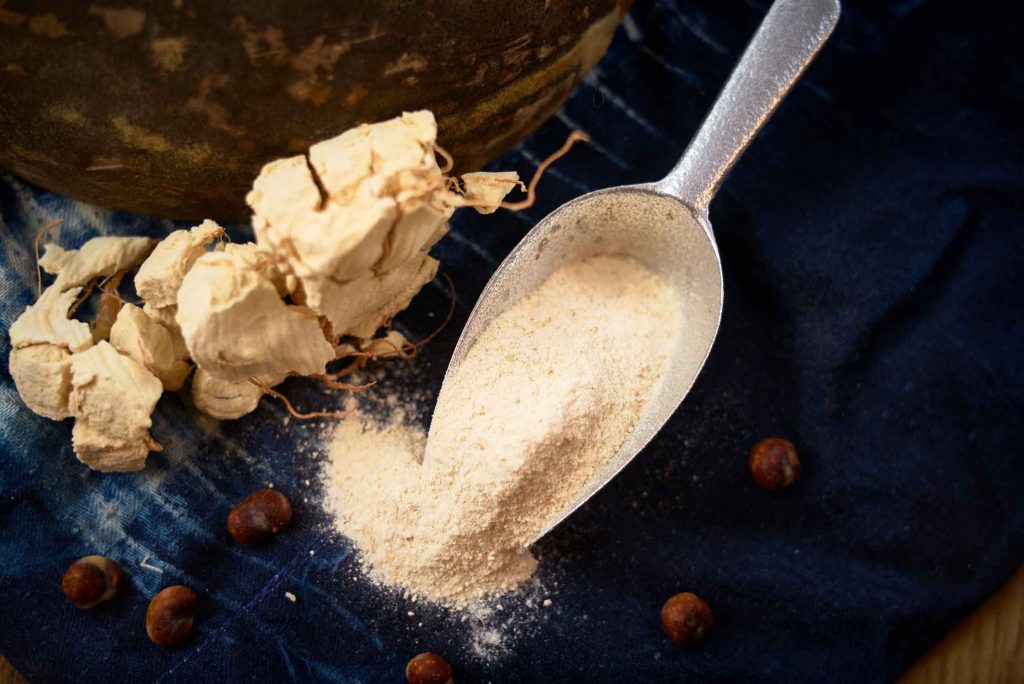Baobab powder: countless benefits

A new product has recently carved out its place in the Umano product range: baobab powder. It deserves its title as a “superfood” because of its high content of vitamins and minerals, antioxidants and fiber. A superb dietary supplement to enrich your diet and enjoy its many health benefits!
Baobab powder is actually the pulp of the fruit of the mythical African tree. The fruit is also called “monkey bread”, since it also appeals to these animals, who like to climb trees to pick the fruit. The tree produces fruit that dries naturally on the tree before being harvested. The seeds are removed and the pulp is reduced to powder and finally sifted. The result is a super nutritious superfood to add to your snacks, drinks and meals.

Without being certified organic, our baobab powder comes from wild fruit harvesting. It is therefore entirely natural, free of contaminants, and does not result from intensive cultivation. It also does not contain any additives.
What are the health benefits of baobab powder?

The exceptional nutrient content of baobab powder has earned it the title of “superfood”. Beyond the marketing behind the term, we call it foods that stand out for their exceptional nutritional value and their numerous health benefits.
Baobab powder is an excellent source of vitamin C, a good source of vitamins B1 and B6, magnesium, manganese, and has a high potassium content. It is also very rich in dietary fiber (composed of almost 50% fiber!) and is rich in antioxidants.
Despite all its nutrients, baobab powder should still be consumed in moderation. Its high intake of fiber and potassium could have negative effects on health if consumed in too large quantities.
How to use baobab powder?
It is generally recommended to use one to two teaspoons of baobab powder per day for regular use. As an occasional course of approximately 3 weeks, the dose can also be increased to one to two tablespoons per day.
You can add baobab powder to your smoothies, yogurts and various drinks, or even sprinkle your cereals and oatmeal at breakfast. It will lightly flavor your food and add a tangy and slightly sweet taste. Children in certain regions of Africa also like to suck the seeds of the baobab fruit and their pulp like little sour candies.
Some suggest putting it in pastry recipes like muffins or pancakes. However, it is more interesting eaten raw, since cooking destroys a good part of its vitamins and fibers. But nothing stops you from adding it to your recipes for granola bars or no-cook energy balls. You will benefit from all the nutritional benefits already listed!